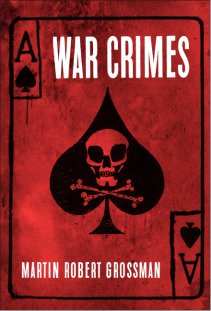Things begin to reach a boiling point as the fishing becomes leaner for the long-time residents of Seabrook because of perceived, Vietnamese incursion into their fishing grounds. With money getting tighter and food for their tables getting scarcer, the situation in Seabrook becomes explosive—just the kind of soup the KKK likes to dip their ladle into!
After several boat burnings and two murders, the Texas Rangers assign Ranger, Jon Compton, to the case. Compton, a former Vietnam Veteran, eventually resolves the case, sends the KKK packing, and the people of Seabrook return to their lives with a guarded, but optimistic, understanding and appreciation, of their new neighbors.
Di Phan, the younger brother of An Phan is secreted out of Vietnam by the infamous drug lord and double agent, Colonel Vinh Ho. It is Vinh Ho that facilitates the 1969 torture and mutilation of Charles Endicott, an American soldier, at the hands of his NVA ally, Di Phan and a Russian advisor. After the fall of Saigon, Vinh Ho sets up Di Phan in the tiny Texas Gulf coast town of Texas City, where Di runs the Colonel’s drug and prostitution rackets. Di Phan lives just seventeen miles from his family but has been ordered not to contact them—ever! The Phan family thinks, despite his service to the north, that their younger brother was killed during the communist take-over of Vietnam.
After twenty-three years on the Los Angeles Police Force, Jerry Andrews moves to Mexico and goes into retirement. He has been living in the Baja town of Loreto for two years and, while he enjoys his new-found freedom, he is getting bored. One day while drinking in his favorite watering hole, the Chili Pepper, he sees a television report about a murder in the small Texas town of Seabrook. A Vietnamese businessman has been killed and a death card left on the body. In a dissociative episode, Jerry vividly remembers an operation during the Vietnam War where an operative from MACV/SOG accompanied him into the field and did the same thing—threw the ace of spades, the death card, on two dead enemy combatants. The operative, Charley Endicott, was a raging psycho and even though they were on the same side of the coin, Jerry feared Endicott, not physically, but because Endicott had no moral compass. Fortunately, Jerry only went on the one operation with Endicott, who soon dropped off the planet—like most of these kinds of operatives are prone to do.
Two joggers discover a body in a park near the Seabrook small boat harbor. Shane Jenson, of the Seabrook Police Department, is assigned the case. A middle-aged Vietnamese male has been found with his throat slashed and a single bullet to the chest—an ace of spades has been neatly placed on the body. Jenson has never been assigned a murder case in the eight years since he’s been with the Seabrook PD—because there hasn’t been any. Seabrook is a sleepy little Gulfport town with a diverse but friendly population. Crime in Seabrook, up to now, has been limited to a few domestic squabbles, an occasional breaking and entering by local teens, some speeding and parking tickets, and Saturday night drunks. While Jenson was competent and confident, he would soon be in over his head—and need to get help from Retired Texas Ranger, Jon Compton.
Jon Compton retires from the Texas Rangers and moves to Seabrook where he lives with the Phan family. He likes the Vietnamese community and is accepted by them as he is accepting of them. On the outside, Compton has put the war behind him, although like most Vietnam Veterans he continues to fight his demons.
While serving with the Texas Rangers, Jon Compton followed the newspaper reports of his old friend, and Special Forces teammate, Jerry Andrews. Jerry had been the lead Los Angeles PD detective that solved the Little Saigon Slasher case. Compton was saddened after reading about the deaths of his other friends and former teammates, Preacher, and Willy Beal; Willy had saved his bacon more than once when they were on A-255 together. Compton and Andrews hook-up to help the Seabrook PD solve this case—where bizarre twists and turns defy the imagination.
One body turns into two then, three, four, five; while one killer turns into two, then three. As the bodies pile up, the two former Vietnam warriors race the clock to save a town from plunging back in time, to an era best left forgotten.
War Crimes will take you on the roller-coaster ride of your life and deliver you into the inner workings of a dangerous and disoriented mind that should have been left to rot, like the vegetation on the floors of Vietnams myriad of jungles.
Prepare yourselves to go through the portal, known as—THE ZONE—back in time, to a place where truth is stranger than fiction.
The cost of a ticket to ride this long black train is, you must have become Collateral Damage during the War in Vietnam. You didn’t have to be boots on the ground. You could have been family, a wife, or a sweetheart that gave your proud GI the brown helmet—there were many forms of Collateral Damage during and after the Vietnam War. You must have paid your dues in spades to belong to this exclusive club—if not, the ride will be rougher, and the carnage unbelievable.








